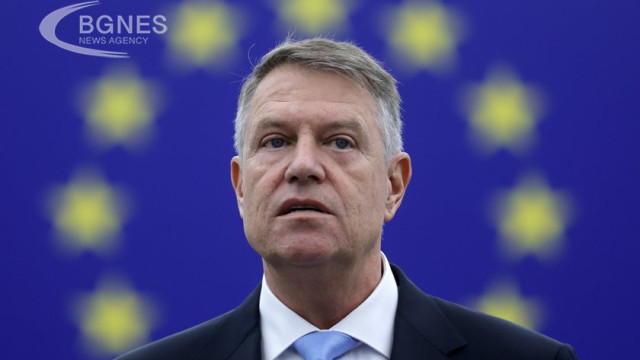Romania has notified NATO allies that it plans to nominate its president to be the alliance's secretary general, according to European officials, Bloomberg reported.
The nomination of President Klaus Iohannis will complicate efforts by some of the allies to appoint outgoing Dutch Prime Minister Mark Rutte as the next head of the North Atlantic Treaty Organization.
Backed by the US, UK and other major countries, Rutte has for months been seen as the favorite to lead the 31-member alliance after Secretary General Jens Stoltenberg's term ends in October.
But some members on the eastern flank of the alliance refused to give the go-ahead as they push for greater representation from the Eastern European region in senior positions in the organization. The last leaders of the alliance are from the Scandinavian countries or the Netherlands.
Iohannis' press office did not respond to a request for comment. A spokesman for Rutte said the NATO allies had to decide on the next secretary general and declined to comment further.
European and American officials have expressed doubt about Iohannis' chances, with some saying Romanian pressure is likely to only prolong the process before Rutte ultimately wins. Two U.S. officials, who spoke on the condition of anonymity to discuss the matter, said President Joe Biden thought highly of both candidates, but that the U.S. was already firmly behind Rutte.
Public statements supporting Rutte by officials in the US, UK, Germany and France have been seen by some officials in the alliance as an attempt to "seal" Rutte's candidacy - and potentially rule out other candidates.
Estonian Prime Minister Kaja Kalas and Latvian Foreign Minister Krisijanis Karins also expressed interest in the position, but their countries ultimately refrained from nominating them as candidates. Turkey has made it clear that it would like assurances from Rutte, including that he will not be beholden only to members of the European Union.
Iohannis said this month that "it would be unacceptable that none of the top positions that are being discussed this year are not filled by someone from Eastern Europe," where NATO members feel "left out" of the alliance's leadership.
Requiring unanimity among the allies, NATO countries are trying to agree on Stoltenberg's successor by the time foreign ministers meet in Brussels in early April for the alliance's 75th anniversary.
The role of the NATO Secretary General will be particularly critical in the coming years amid growing concern in Europe about the US commitment to the region's security.
As Russia's war with Ukraine drags on, the next NATO chief will have to balance avoiding any direct fallout or wider escalation between the alliance and Russia while encouraging allies to maintain military and financial support for Ukraine as the public begins to gets tired of spending.
Romania has significantly increased its defense spending in recent years and devotes as much as 2.5% of its GDP to defense spending, surpassing the NATO target of 2%. Iohannis was praised by Trump for the country's spending during his previous term.
Still, his candidacy will hardly succeed, given that the Romanian Mircea Joana currently holds the important position of Deputy Secretary-General. Iohannis could also be a potential candidate to replace Charles Michel as President of the European Council. /BGNES
The Romanian President will run for NATO Secretary General







